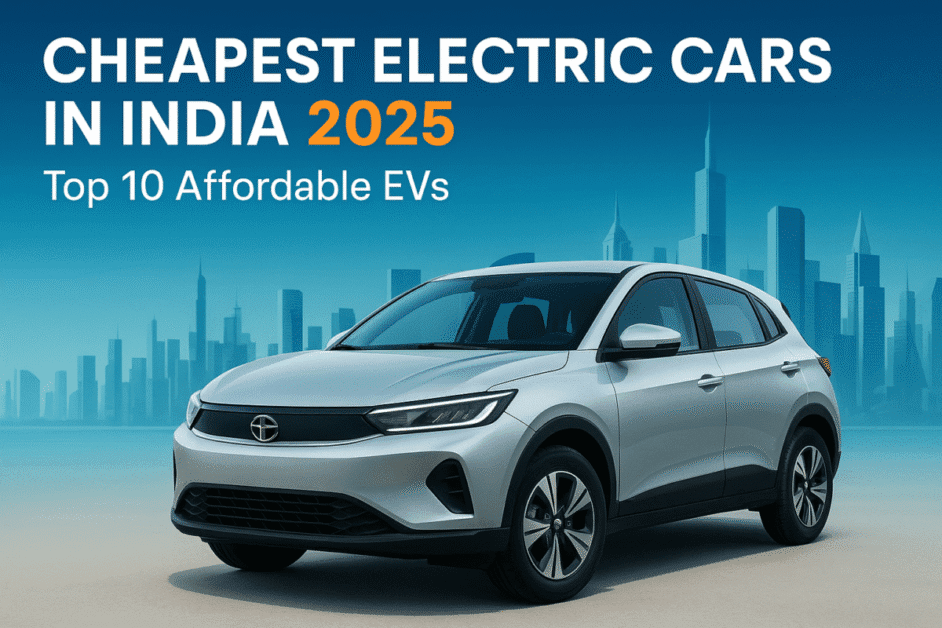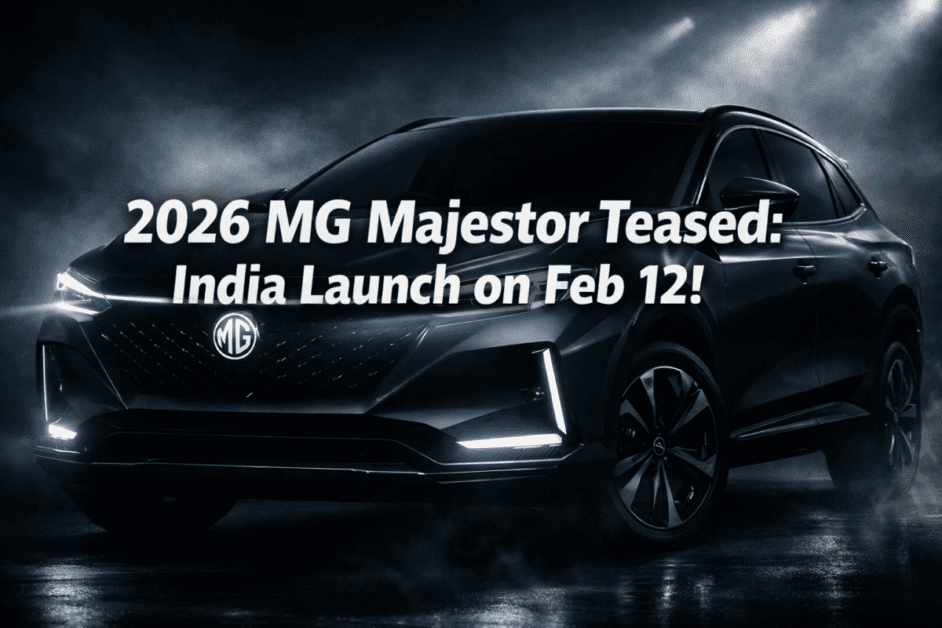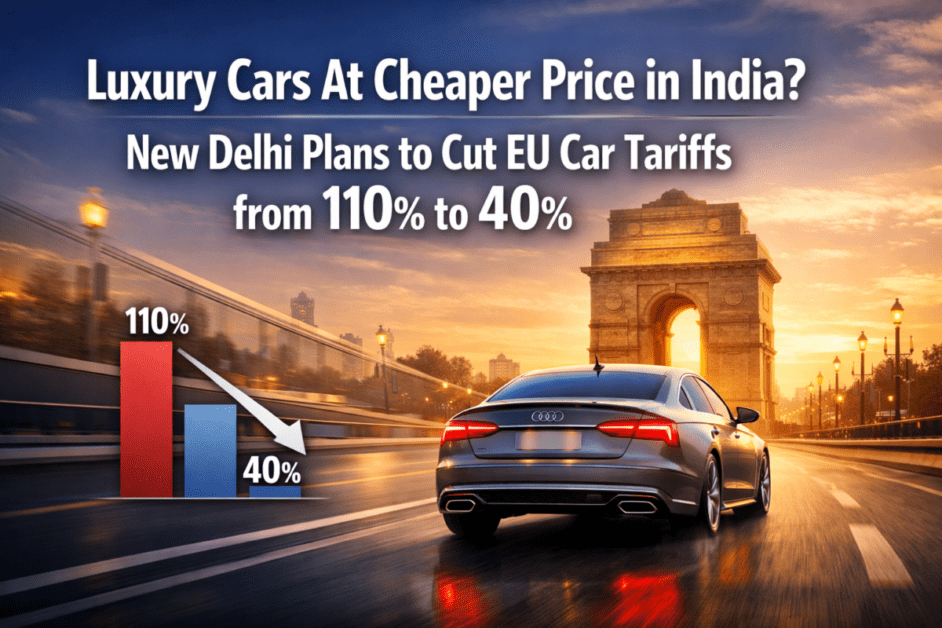The electric vehicle revolution is sweeping across India, and contrary to popular belief, you don’t need to break the bank to join this green movement. While many associate electric cars with premium pricing, the Indian market now offers several affordable electric car options that make sustainable transportation accessible to the masses. From Tata’s impressive lineup to emerging players like MG, the landscape of budget-friendly EVs is rapidly evolving.
Key Takeaways
- MG Comet EV leads as the most affordable electric car in India, starting at just ₹6.99 lakh
- Tata dominates the affordable EV segment with multiple models under ₹15 lakh
- Government incentives and subsidies can reduce the effective cost by ₹1-3 lakh
- Running costs of electric cars are significantly lower than petrol cars, offering long-term savings
- Charging infrastructure is rapidly expanding, making EVs more practical for daily use
Top 10 Cheapest Electric Cars in India 2025
1. MG Comet EV – Starting at ₹6.99 Lakh
The MG Comet EV takes the crown as the cheapest electric car in India. This compact city car offers an impressive range of 230 km on a single charge, making it perfect for urban commuting. Despite its affordable price point, the MG Comet EV doesn’t compromise on features, offering a modern infotainment system and adequate safety features.
Key Specifications:
- Price Range: ₹6.99 – ₹9.40 lakh
- Range: 230 km
- Battery: 17.3 kWh
- Charging Time: 7 hours (AC), 1 hour (DC fast charging)
2. Tata Tiago EV – Starting at ₹7.99 Lakh
Tata Motors has positioned the Tata Tiago EV as an excellent entry-point into electric mobility. Based on the popular Tiago platform, this electric vehicle offers familiar design cues with the benefits of electric powertrain technology.
Key Specifications:
- Price Range: ₹7.99 – ₹11.89 lakh
- Range: 315 km
- Battery: 24 kWh
- Charging Time: 8.5 hours (AC), 1 hour (DC fast charging)
3. Tata Tigor EV – Starting at ₹11.99 Lakh
The Tata Tigor EV brings sedan comfort to the affordable electric car segment. Originally launched for fleet operations, it’s now available for personal buyers, offering spacious interiors and a decent driving experience.
Key Specifications:
- Price Range: ₹11.99 – ₹13.14 lakh
- Range: 306 km
- Battery: 26 kWh
- Charging Time: 8.5 hours (AC), 1.2 hours (DC fast charging)
4. Tata Punch EV – Starting at ₹10.99 Lakh
Building on the success of the ICE Punch, the Tata Punch EV offers SUV styling in an affordable electric package. This micro-SUV combines rugged looks with efficient electric mobility, making it one of the most popular electric cars in its segment.
Key Specifications:
- Price Range: ₹10.99 – ₹15.49 lakh
- Range: 421 km
- Battery: 35 kWh
- Charging Time: 9.5 hours (AC), 1 hour (DC fast charging)
5. Tata Nexon EV – Starting at ₹14.99 Lakh
The Tata Nexon EV represents the perfect blend of affordability and premium features in the electric SUV segment. With its robust build quality and impressive range, it has become one of the best-selling EVs in India.
Key Specifications:
- Price Range: ₹14.99 – ₹19.94 lakh
- Range: 465 km
- Battery: 40.5 kWh
- Charging Time: 10.5 hours (AC), 1 hour (DC fast charging)
6. MG Windsor EV – Starting at ₹13.50 Lakh
The MG Windsor EV offers premium sedan experience at an affordable price point. With its spacious cabin and advanced features, it competes directly with traditional sedans while offering the benefits of electric mobility.
Key Specifications:
- Price Range: ₹13.50 – ₹15.50 lakh
- Range: 331 km
- Battery: 38 kWh
- Charging Time: 8 hours (AC), 55 minutes (DC fast charging)
7. Mahindra XUV400 – Starting at ₹15.49 Lakh
Mahindra’s entry into the affordable electric SUV segment, the XUV400 offers impressive performance and range. While slightly pricier than Tata’s offerings, it provides excellent value for money in the electric SUV category.
Key Specifications:
- Price Range: ₹15.49 – ₹17.69 lakh
- Range: 456 km
- Battery: 39.4 kWh
- Charging Time: 6.5 hours (AC), 50 minutes (DC fast charging)
8. Citroen eC3 – Starting at ₹11.50 Lakh
The Citroen eC3 brings European design philosophy to the Indian electric car market. With its unique styling and practical features, it offers an alternative to the Tata-dominated affordable EV segment.
Key Specifications:
- Price Range: ₹11.50 – ₹12.35 lakh
- Range: 320 km
- Battery: 29.2 kWh
- Charging Time: 10.5 hours (AC), 57 minutes (DC fast charging)
9. BYD Atto 3 – Starting at ₹24.99 Lakh
While on the higher end of our affordable list, the BYD Atto 3 offers premium features and international build quality. It represents excellent value for those seeking a feature-rich electric SUV.
Key Specifications:
- Price Range: ₹24.99 – ₹33.99 lakh
- Range: 521 km
- Battery: 60.48 kWh
- Charging Time: 9 hours (AC), 50 minutes (DC fast charging)
10. Hyundai Kona Electric – Starting at ₹23.79 Lakh
The Hyundai Kona Electric rounds out our list with its proven international pedigree and comprehensive feature set. While premium-priced, it offers exceptional build quality and driving dynamics.
Key Specifications:
- Price Range: ₹23.79 – ₹24.95 lakh
- Range: 452 km
- Battery: 39.2 kWh
- Charging Time: 9.35 hours (AC), 57 minutes (DC fast charging)
🚗 Electric Car Comparison Tool
Compare the cheapest electric cars in India by price, range, and features
| Car Model | Price Range | Range (km) | Battery (kWh) | Body Type | Brand |
|---|
Understanding Electric Car Pricing in India
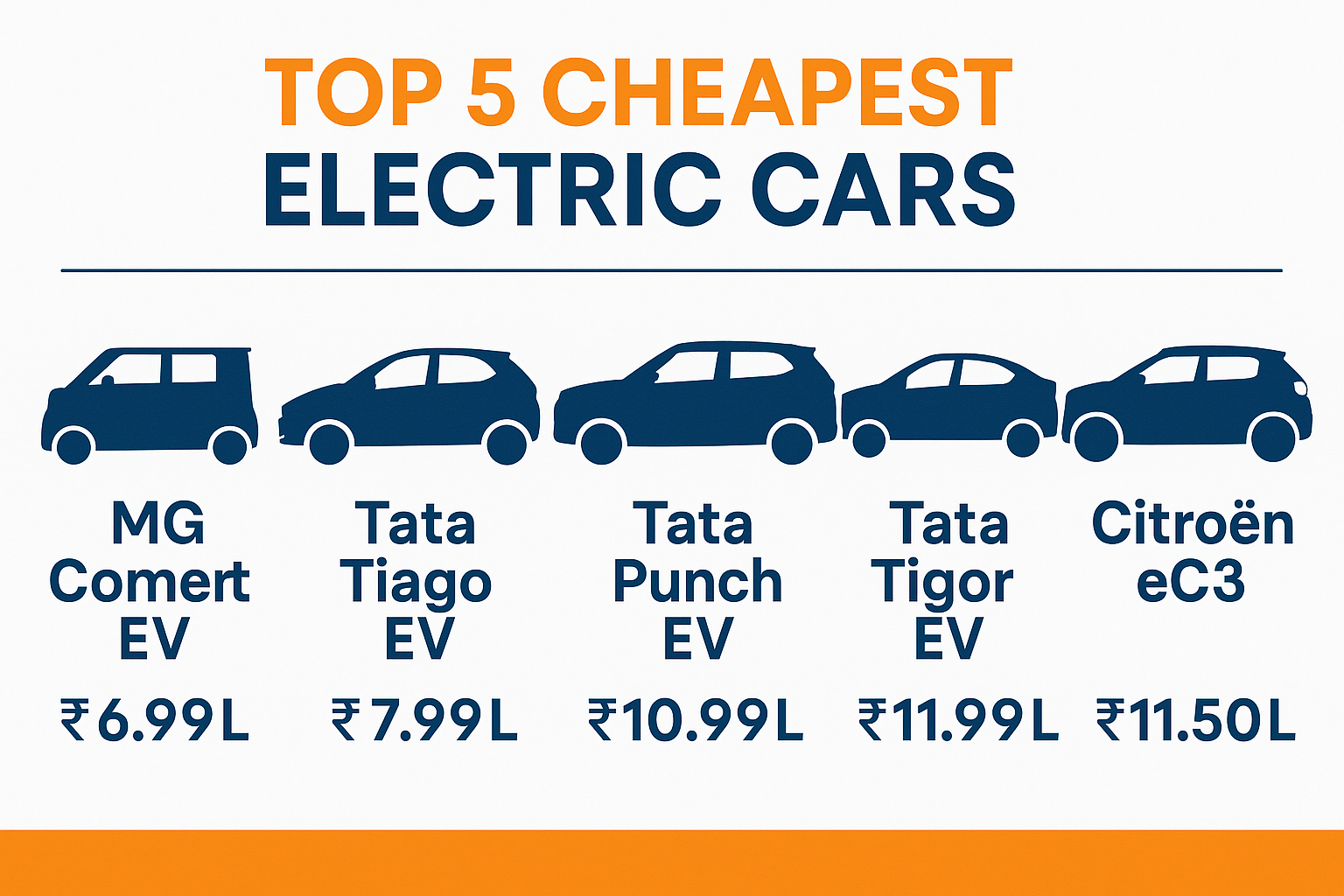
The cost of electric cars in India varies significantly based on several factors. Government subsidies under the FAME II scheme can reduce prices by up to ₹1.5 lakh for certain models. State-specific incentives further enhance affordability, making electric mobility more accessible to Indian car buyers.
Factors Affecting EV Car Prices
Battery Technology: The battery pack represents 40-50% of an electric car’s cost. Advances in lithium-ion technology are gradually reducing these costs.
Manufacturing Scale: As production volumes increase, manufacturers like Tata Motors can offer more competitive pricing across their EV lineup.
Import Duties: Locally manufactured EVs like the Tata range are significantly cheaper than imported models due to favorable duty structures.
Government Incentives and Subsidies for Electric Cars
The Indian government has implemented several initiatives to promote EV adoption:
FAME II Scheme Benefits
- Up to ₹1.5 lakh subsidy on eligible electric cars
- Additional benefits for commercial vehicle buyers
- Reduced GST rates on electric vehicles
State-Level Incentives
Different states offer varying benefits:
- Delhi: Up to ₹1.5 lakh incentive + road tax exemption
- Maharashtra: ₹1 lakh subsidy + registration fee waiver
- Gujarat: Road tax and registration fee exemption
These incentives significantly impact the effective electric car prices, making models like the MG Comet EV at Rs 6.99 lakh even more affordable.
Cost of Ownership: Electric vs Petrol Cars
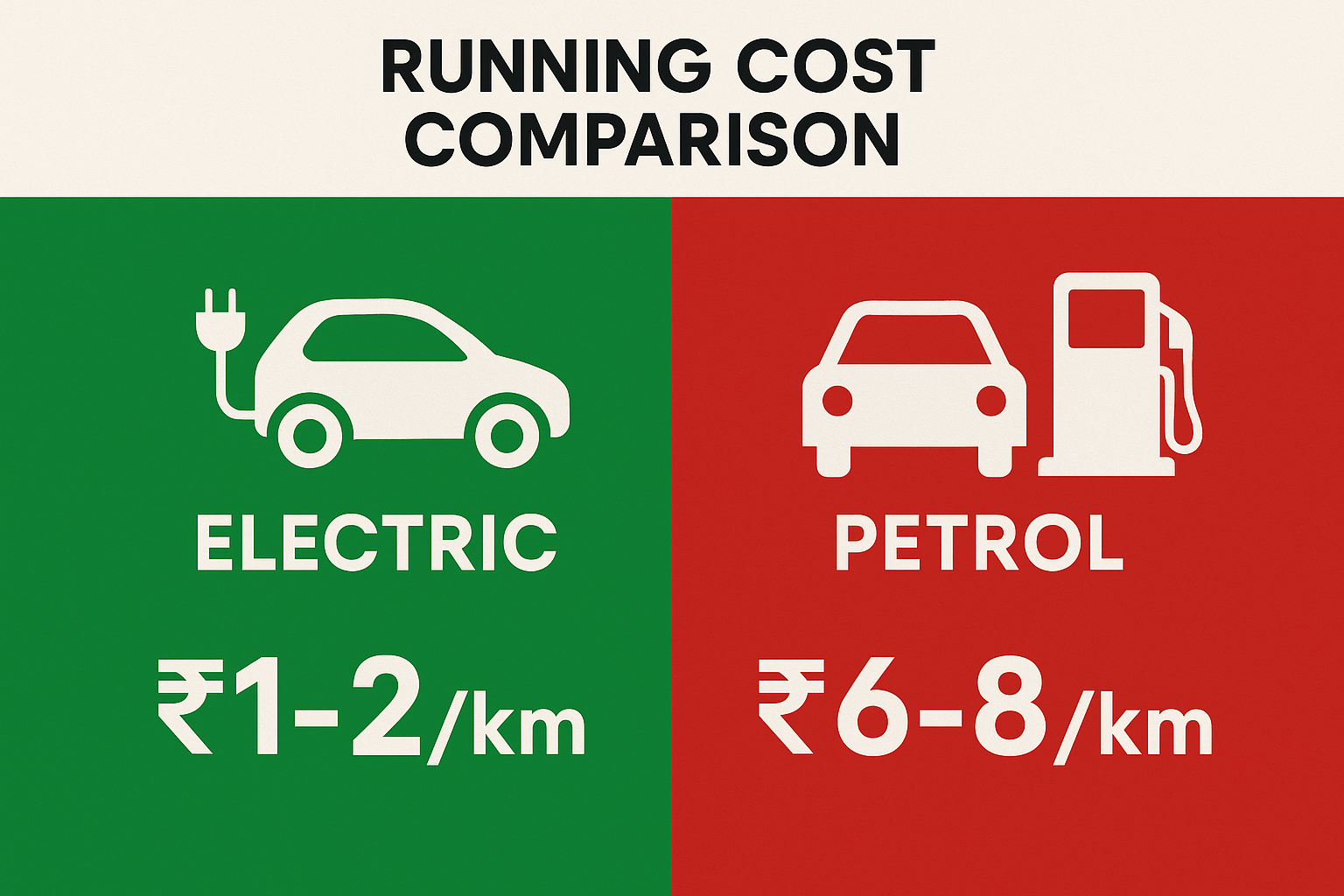
Running Cost Comparison
Electric Cars:
- Electricity cost: ₹1-2 per km
- Minimal maintenance requirements
- No engine oil changes
- Reduced brake wear due to regenerative braking
Petrol Cars:
- Fuel cost: ₹6-8 per km (current fuel prices)
- Regular maintenance required
- Higher service costs
Long-term Savings
For an average annual driving of 15,000 km, electric car owners can save ₹60,000-90,000 annually on running costs compared to petrol cars. This makes even slightly expensive electric cars cost-effective in the long run.
Charging Infrastructure and Electric Car Charging
The electric car charging infrastructure in India has expanded rapidly:
Types of Charging
- AC Charging: 3-10 hours for full charge
- DC Fast Charging: 30-60 minutes for 80% charge
- Home Charging: Most convenient option for daily use
Charging Networks
Major players are establishing extensive EV charging networks:
- Tata Power: 5,000+ charging points
- BPCL: 7,000+ planned installations
- Private players: Ather, ChargeZone, etc.
The expanding infrastructure addresses range anxiety, making electric mobility more practical for Indian consumers.
Upcoming Electric Cars in India 2025
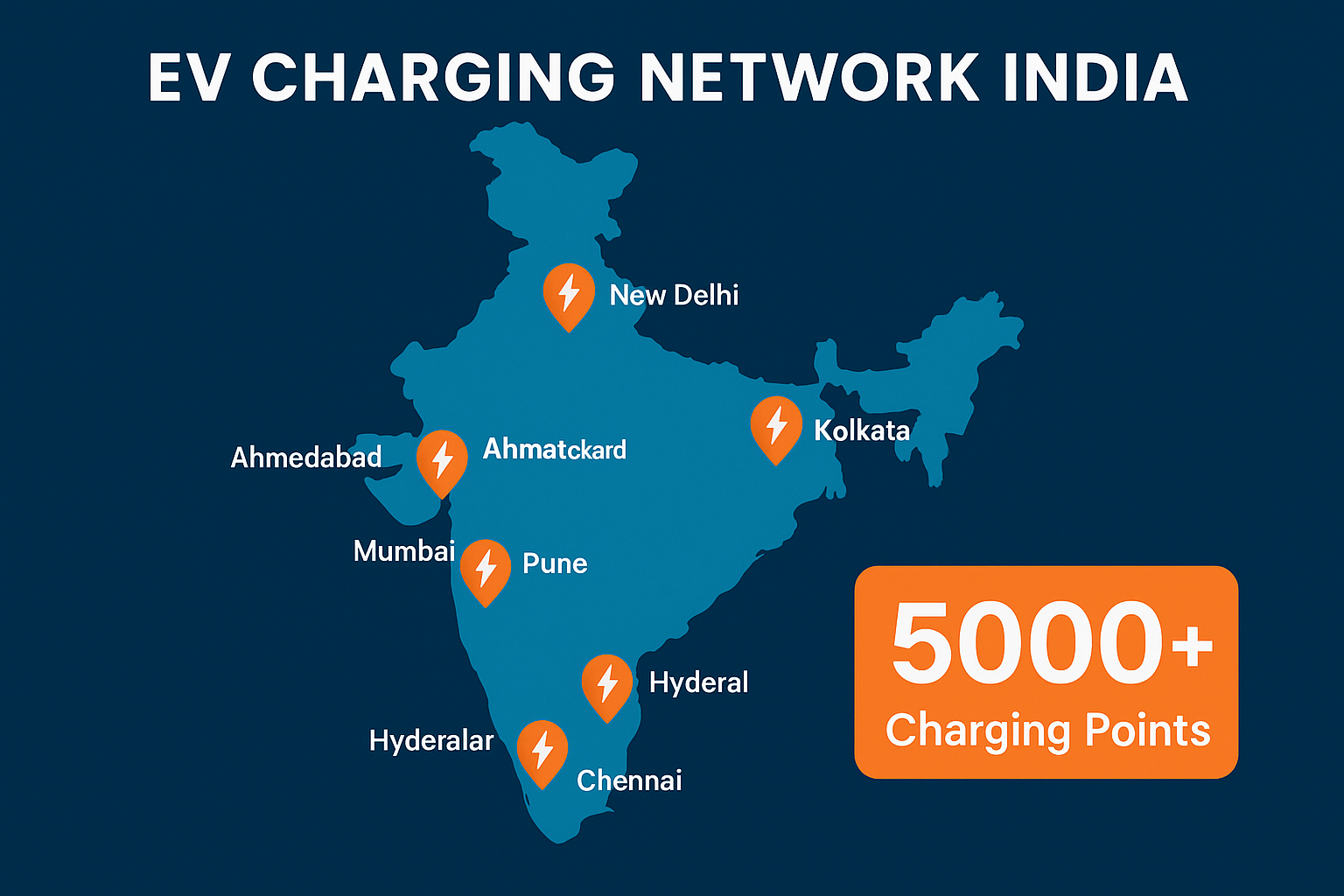
Several upcoming electric cars will further expand the affordable EV segment:
Tata’s Pipeline
- Tata Harrier EV: Expected launch in late 2025
- Tata Safari EV: Premium electric SUV
- Tata Altroz EV: Delayed but still in development
Other Manufacturers
- Maruti Suzuki: Planning multiple EV launches
- Hyundai: Expanding beyond Kona Electric
- Mahindra: Additional electric SUV models
These launches will intensify competition and potentially reduce electric car prices further.
Popular Electric Cars: What Makes Them Stand Out
Tata’s Dominance
Tata has established itself as the leader in affordable EVs in India through:
- Proven safety standards (5-star Global NCAP ratings)
- Extensive service network
- Competitive pricing strategy
- Reliable after-sales support
MG’s Value Proposition
MG has disrupted the market with feature-rich offerings at competitive prices, particularly with the MG Comet EV and MG Windsor EV.
Safety Features in Affordable Electric Cars
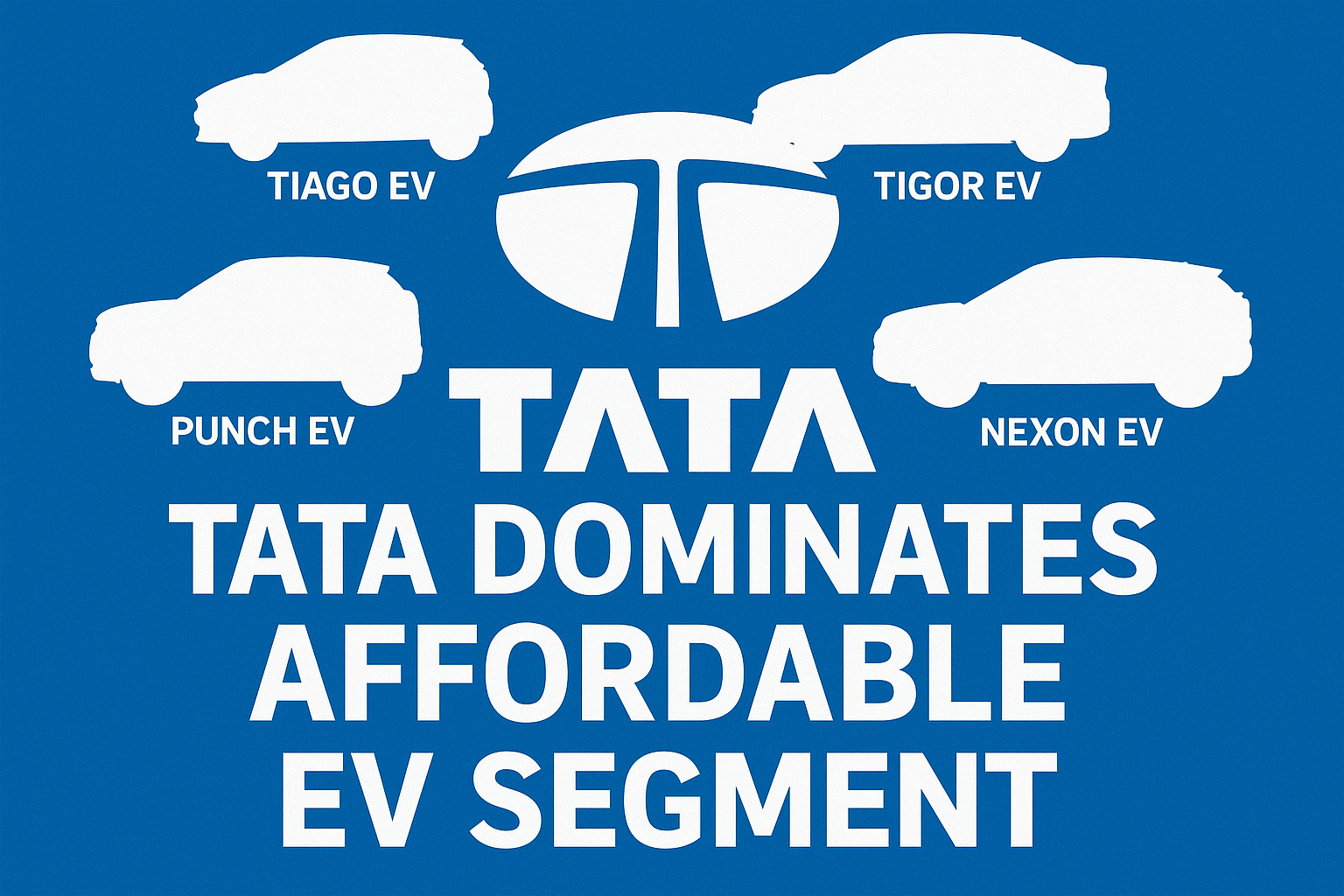
Modern affordable EVs don’t compromise on safety features:
Standard Safety Equipment
- Dual airbags (driver and passenger)
- ABS with EBD
- Electronic stability control
- Hill hold assist
- Reverse parking sensors
Advanced Features (Premium Variants)
- 360-degree cameras
- Blind spot monitoring
- Automatic emergency braking
- Connected car technology
Driving Experience: What to Expect
The driving experience of electric cars differs significantly from conventional vehicles:
Advantages
- Instant torque delivery
- Silent operation
- Smooth acceleration
- Lower center of gravity (better handling)
Considerations
- Different braking feel due to regeneration
- Range planning for long trips
- Charging time considerations
Making the Switch: Things to Consider When Buying an Electric Car
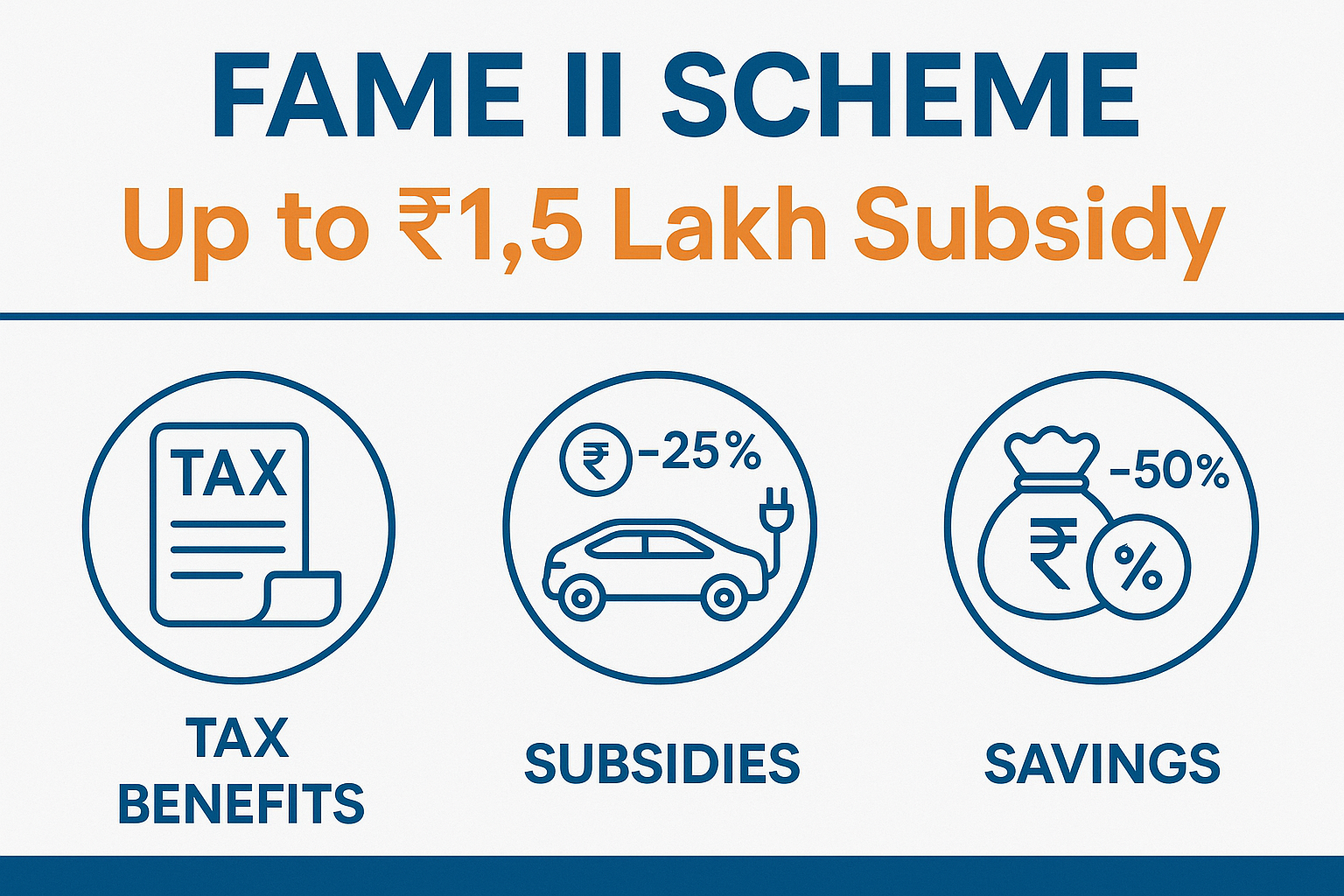
Key Considerations for Car Buyers
Daily Driving Needs: Assess your typical daily mileage to choose appropriate range.
Charging Facility: Ensure home charging setup or nearby public charging access.
Budget Planning: Consider total cost of ownership, not just purchase price.
Model Selection: Choose between the various cars available in India based on your specific requirements.
Best Electric Cars in India for Different Needs
- City Commuting: MG Comet EV, Tata Tiago EV
- Family Use: Tata Nexon EV, MG Windsor EV
- Weekend Adventures: Tata Punch EV, Mahindra XUV400
- Premium Experience: BYD Atto 3, Hyundai Kona Electric
The Future of Electric Mobility in India
The transition to electric vehicles in India is accelerating rapidly. Several factors contribute to this growth:
Market Drivers
- Improving battery cars technology
- Expanding charging infrastructure
- Government policy support
- Environmental awareness
Industry Predictions
Experts predict that by 2030:
- Electric cars will comprise 30% of new vehicle sales
- Electric car prices will achieve parity with ICE vehicles
- EV adoption will accelerate in tier-2 and tier-3 cities
The Indian market is poised for significant transformation, with electric mobility becoming mainstream rather than niche.
Reviews of Electric Cars: Real-World Feedback
Reviews of electric cars from actual users highlight several common themes:
Positive Feedback
- Significant savings on fuel costs
- Smooth and quiet operation
- Modern features and connected car technology
- Environmental benefits
Areas for Improvement
- Charging infrastructure in smaller cities
- Range anxiety for long-distance travel
- Higher upfront costs (though decreasing)
Conclusion
The landscape of cheapest electric cars in India offers compelling options for every budget and requirement. From the ultra-affordable MG Comet EV starting at ₹6.99 lakh to feature-rich options like the Tata Nexon EV, the market has matured significantly.
Key takeaways for prospective buyers:
- Start with the MG Comet EV or Tata Tiago EV if you’re looking for the most affordable entry into electric mobility
- Consider total cost of ownership rather than just the purchase price
- Evaluate your daily driving needs to choose the right range and features
- Take advantage of government incentives to reduce effective costs
- Plan for charging infrastructure based on your usage patterns
The electric vehicle revolution in India is no longer a question of ‘if’ but ‘when.’ With improving technology, expanding infrastructure, and competitive pricing, 2025 represents the perfect time to make the switch to electric mobility.
Whether you’re a first-time car buyer or looking to upgrade from a conventional vehicle, the current range of affordable electric cars offers something for everyone. The combination of lower running costs, environmental benefits, and increasingly competitive features makes electric cars an intelligent choice for modern Indian consumers.
For those interested in exploring more automotive options, check out our comprehensive guide to the best cars in India or learn more about the broader electric cars India market landscape.
